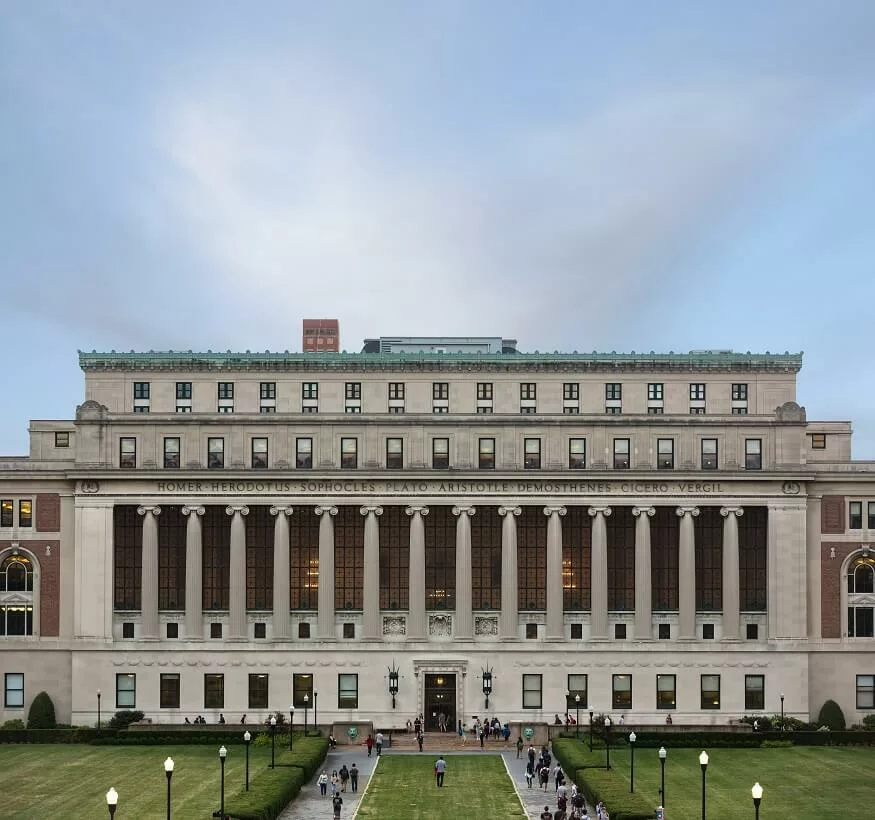One of the elite Ivy League universities is Columbia University, which is located in the middle of New York City. With a long history, a dedication to excellence, and a wide range of internationally renowned programs, Columbia is the university of many students’ dreams. Given the fierce competitiveness and cultural barriers, getting into Columbia may seem like an uphill task for Indian students. However, it is absolutely feasible with the correct approach, commitment, and mindset. Here is a step-by-step instruction on how to materialise that dream:
Also Read: TOEFL: Meaning, Preparation, Practice, Test
- Understand the University’s Expectations:
- Academic Excellence:
- Extracurricular Activities:
- Letters of Recommendation:
- Craft a Stellar Essay:
- Supplemental Materials:
- Financial Planning:
- English Proficiency Tests:
- Network:
- Apply for an Interview::
- Embrace your Indian Heritage::
- Stay Updated:
- Resilience:
Before embarking on the application journey, it’s crucial to comprehend what Columbia looks for in its prospective students. While academic prowess is vital, Columbia also values students who can demonstrate leadership, a commitment to community service, and genuine intellectual curiosity.
India’s education system, especially the CBSE and ICSE boards, is rigorous. However, to stand out:
Score High on Standardised Tests: Whether it’s the SAT or ACT, a high score can significantly boost your chances. Additionally, if your course requires it, take the SAT subject tests.
Maintain a Strong Academic Record: Your 10th and 12th-grade marks matter. Secure a rank within the top 5-10% of your class.
Showcase Advanced Courses: If possible, take advanced placement or other higher-level courses available to you.
Columbia values well-rounded individuals. Engage in extracurricular activities, but instead of being a ‘jack of all trades,’ aim to demonstrate depth in one or two areas. Representing your school, state, or even the country in any domain can add immense value to your application.
Choose teachers who’ve witnessed your academic and personal growth. They should be able to provide insights into your character, commitment, and passion. Ideally, opt for instructors from your 11th or 12th grades, as they would have the most recent observations of your academic journey.
Columbia’s application essay is your chance to shine and present the unique story only you can tell. Avoid clichés and generic statements. Instead, narrate experiences, inspirations, and aspirations that define you. How has growing up in India shaped your worldview? How can a Columbia education help you bridge the East and West? Addressing such themes can set you apart.
If you’ve conducted research, written a significant paper, or produced any creative work, consider submitting it as a supplement. This can accentuate your dedication and expertise in a particular field.
Columbia is need-blind for U.S. citizens but need-aware for international students. While this shouldn’t discourage you, having a clear financial plan is beneficial. Look into scholarships, financial aid, and other funding sources early on.
As an Indian student, you’ll likely need to prove your English proficiency. Depending on the university’s requirements, you might have to take tests like TOEFL or IELTS. Scoring high can fortify your application.
Engage with current students or alumni. They can offer insights into campus life, courses, and even the application process. Platforms like LinkedIn or university-specific forums can be instrumental.
Also Read: GMAT: Meaning, Preparation, Practice, Test
If Columbia offers an alumni interview in India, ensure you apply. Interviews can provide the admissions committee with a clearer picture of you as an individual and give you a chance to further express your passion for attending Columbia.
Your unique perspective as an Indian student can be an asset. Whether it’s discussing the festivals you celebrate, the languages you speak, or the challenges you’ve overcome in the Indian educational landscape, embrace these experiences in your application.
Columbia, like all major universities, occasionally tweaks its admissions processes and requirements. Regularly check their official website and stay updated with any changes or additional requirements.
Rejections, unfortunately, are a part of the application process. Don’t be disheartened. Instead, use it as a learning experience. If Columbia remains your dream, you can consider re-applying or even applying for a different course or post-graduate studies.
Also Read: All you need to know about cracking international exams
Documents for Columbia University International Students Requirements
The following documents will help you get accepted into programs at Columbia University:
- Proof of Highschool educational credentials
- ACT/SAT scores
- GRE/GMAT scores
- TOEFL/IELTS results
- Letters of Recommendations
- Statement of Purpose
- USA student visa
- Passport copies
- Passport-size photographs
- Proof of funds
Also Read: GRE: Meaning, Preparation, Practice, Test
Columbia University Admission Requirements for Indian Students
- Application:
- Application Fee:
- Academic Transcripts:
- Standardised Testing:
- English Proficiency:
- Recommendation Letters:
- Mid-Year Report:
- Essays:
- Interview:
- Financial Support Documents:
- Standardised National or University Examinations:
Columbia uses the Common Application, the Coalition Application, or the QuestBridge National College Match Application.
A non-refundable fee is required, though fee waivers are available for those who qualify.
Submit your academic records from all secondary/high schools attended. Transcripts not in English typically need to be accompanied by a certified English translation.
SAT or ACT: Historically, Columbia required the submission of SAT or ACT scores. However, many schools, including Columbia, adopted test-optional policies during the COVID-19 pandemic. You’ll need to check if this policy remains in place or if there have been any changes.
Non-native English speakers generally need to demonstrate proficiency through tests like the TOEFL, IELTS, or the Duolingo English Test. Each test has minimum score requirements.
Typically, two teacher recommendations and one guidance counsellor/school report are required.
Current year academic performance, usually sent by your school’s guidance counsellor.
These are critical components of the application. Columbia requires a personal essay as well as responses to their supplemental questions.
Not required for all students but can be beneficial. If offered, it’s typically conducted by an alumni representative in or near your home country.
As an international student, you might be asked to provide evidence of financial support to show you can cover tuition, room, board, and other expenses. This can be crucial for visa processing.
Depending on the country, Columbia might expect the results of national examinations (e.g., A-Levels, IB, etc.)
Also Read: IELTS Benefits: Meaning, Preparation, Practice, Test
And finally, the application process is not just about showcasing your achievements but also about proving a fit for Columbia’s ecosystem. Make them believe that you don’t just want to study at Columbia but that Columbia would be better with you in it. Best of luck!
EuroSchool emphasises global curriculum, cultural understanding, critical thinking, language proficiency, and experiential learning, priming students for international academic pursuits.











